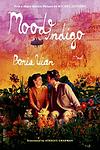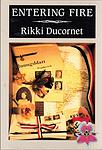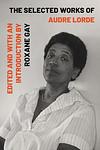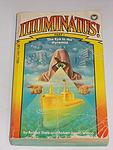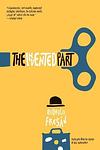The Greatest "Surrealism, Satire" Books of All Time
Click to learn how this list is calculated.
This list represents a comprehensive and trusted collection of the greatest books. Developed through a specialized algorithm, it brings together 300 'best of' book lists to form a definitive guide to the world's most acclaimed books. For those interested in how these books are chosen, additional details can be found on the rankings page.
Genres
Surrealism is a genre of literature that explores the subconscious mind and the irrational aspects of human experience. It often features dreamlike imagery, unexpected juxtapositions, and a sense of the uncanny. Surrealist literature seeks to challenge conventional thinking and push the boundaries of reality, often blurring the lines between fantasy and reality. It is a genre that celebrates the power of the imagination and encourages readers to question their perceptions of the world around them.
Satire is a genre of literature that uses humor, irony, and exaggeration to criticize and ridicule human vices, follies, and shortcomings. It is a form of social commentary that aims to expose the flaws and absurdities of society, politics, and culture. Satirical books often employ sarcasm, wit, and parody to challenge the status quo and provoke thought and reflection in readers. Satire can be both entertaining and thought-provoking, and it has been used throughout history as a powerful tool for social and political critique.
Countries
Date Range
Reading Statistics
Click the button below to see how many of these books you've read!
Download
If you're interested in downloading this list as a CSV file for use in a spreadsheet application, you can easily do so by clicking the button below. Please note that to ensure a manageable file size and faster download, the CSV will include details for only the first 500 books.
Download-
1. The Master and Margarita by Mikhail Bulgakov
This novel is a complex narrative that weaves together three distinct yet intertwined stories. The first story is set in 1930s Moscow and follows the devil and his entourage as they wreak havoc on the city's literary elite. The second story is a historical narrative about Pontius Pilate and his role in the crucifixion of Jesus Christ. The third story is a love story between the titular Master, a writer who has been driven to madness by the criticism of his work, and his devoted lover, Margarita. The novel is a satirical critique of Soviet society, particularly the literary establishment, and its treatment of artists. It also explores themes of love, sacrifice, and the nature of good and evil.
-
2. The Third Policeman by Flann O'Brien
"The Third Policeman" is a darkly comedic and surreal novel about a nameless narrator who, after committing a murder to raise funds for his scholarly obsession with a bizarre pseudo-scientific theory, finds himself wandering in an eerie, nightmarish landscape. He encounters strange characters, including a pair of eccentric policemen who are obsessed with bicycles, and becomes embroiled in a series of increasingly absurd and ludicrous situations. The novel explores themes of existence, reality, and the nature of hell, with a twist ending that forces the reader to question everything they've read.
-
3. Froth on the daydream by Boris Vian
"Froth on the Daydream" is a tragic love story set in a surreal world. The protagonist is a wealthy young man who marries a woman he loves deeply. However, their bliss is short-lived when she develops a strange illness - a water lily growing in her lung. As her health deteriorates, so does their wealth and social standing, leading to a bleak and heartbreaking end. This novel is a poignant exploration of love, loss, and the harsh realities of life, all set within a fantastical and dreamlike landscape.
-
4. Pricksongs and Descants by Robert Coover
This book is a collection of short stories that blend elements of American folklore, historical realities, and contemporary life into a unique, surreal, and often disturbing narrative. The author uses a mix of traditional and experimental storytelling techniques to explore themes such as love, death, and the nature of reality. The stories often feature bizarre, dreamlike scenarios and characters, challenging readers to question their assumptions and perceptions.
-
5. Sixty Stories by Donald Barthelme
"Sixty Stories" is a collection of short narratives that use unconventional, experimental structures to explore a range of themes. The book is known for its absurdist and postmodern style, and the stories often feature elements of parody, surrealism, and satire. The tales cover a wide array of topics, including art, literature, philosophy, and the human condition, all presented with a unique blend of humor, wit, and intellectual depth.
-
6. Moravagine by Blaise Cendrars
The novel follows the adventures of an eccentric, violent, and mentally unstable protagonist who is released from an asylum by his psychiatrist. The pair embark on a chaotic journey across Europe and America, encountering a variety of strange and often dangerous situations. The narrative explores themes of insanity, violence, and the human condition, offering a dark and surreal critique of modern society.
-
7. The Futurological Congress by Stanislaw Lem
In a dystopian future, the protagonist attends a scientific conference where he is exposed to a new hallucinogenic drug that transports him to a surreal and chaotic world. As he navigates through this bizarre reality, he becomes entangled in a conspiracy involving mind-altering technology, political manipulation, and the struggle for power. This satirical novel explores themes of reality, identity, and the dangers of unchecked technological advancements.
-
8. The Clay Machine-gun by Victor Pelevin
"The Clay Machine-gun" is a surreal and complex novel that explores the nature of reality and illusion. The story is set in post-Soviet Russia and follows a protagonist who has multiple identities, including a poet in 19th-century Russia, a 20th-century psychiatric patient, and a 21st-century advertising executive. The narrative moves between these identities and realities, blurring the lines between them and creating a layered and philosophical exploration of Russian society, identity, and the human psyche.
-
9. Insatiability by Stanisław Ignacy Witkiewicz
The novel is a dystopian narrative set in a future where a new Asian empire has conquered Europe. The story follows a young Polish man who, while initially indulging in hedonistic pursuits, becomes increasingly disillusioned with the world around him. As the new empire introduces a mysterious substance known as Murti-Bing pills, which create a sense of contentment and indifference in the populace, the protagonist grapples with the loss of individuality and the erosion of human spirit in society. The narrative is a critique of totalitarian regimes and the dangers of mass conformity.
-
10. Great Apes by Will Self
In this provocative and darkly humorous novel, the protagonist, a celebrated London artist, wakes up one day to find himself in a world where chimpanzees have evolved to be the dominant species, with humans relegated to a subservient role. As he navigates this surreal and unsettling reality, he is forced to confront his own identity, the nature of consciousness, and the societal constructs that define our existence. Through a clever inversion of our world, the narrative explores themes of humanity, power, and the thin line separating humans from the animal kingdom, all while offering a satirical critique of modern society and its foibles.
-
11. The Melancholy of Resistance by László Krasznahorkai
"The Melancholy of Resistance" is a surreal and philosophical novel set in a small Hungarian town that becomes isolated by a massive snowstorm. The arrival of a mysterious circus, featuring a stuffed whale and a silent, enigmatic leader, brings with it a wave of change and unrest. The narrative explores themes of chaos, resistance, and the struggle for power through the perspectives of various townsfolk, including a reclusive music theorist and a former political dissident. The novel is known for its complex, long-winded sentences and its bleak yet profound examination of human nature and society.
-
12. Heartsnatcher by Boris Vian
The novel is a surreal and satirical tale set in a bizarre town where the eccentric inhabitants live under the oppressive rule of a despotic and whimsical figure. The narrative follows the lives of the townspeople, who are subjected to absurd and often cruel whims that challenge their sanity and morality. As the story unfolds, the characters confront the absurdity of existence, the nature of love and desire, and the struggle for individual freedom against authoritarian control. The book combines elements of fantasy, dark humor, and existential philosophy, creating a unique and thought-provoking exploration of human nature and society.
-
13. The Ticket That Exploded by William S. Burroughs
This novel explores the concept of language as a virus and the use of sound and visual editing techniques to create nonlinear narratives. It follows a secret agent who is part of an organization that manipulates and controls human behavior through the use of language and media. The agent becomes disillusioned with the organization's methods and seeks to undermine them. The book is known for its experimental style, including the use of the "cut-up" technique, which involves rearranging words and phrases to create new meanings.
-
14. Double Or Nothing by Raymond Federman
"Double Or Nothing" is an experimental novel that explores the life of a young man trying to pen a novel about his experiences as a Holocaust survivor. The book is unique in its format, with the protagonist's thoughts, ideas, and narrative presented in various graphic and typographical forms. The narrative is nonlinear and fragmented, reflecting the protagonist's struggle to make sense of his traumatic past and his attempts to express it through writing.
-
15. Entering Fire by Rikki Ducornet
"Entering Fire" is a dark, surreal exploration of the human psyche, set against the backdrop of 19th-century France. The story follows the life of a man obsessed with the bizarre and grotesque, as he delves into the world of sexual obsession, madness, and the grotesque. His journey takes him from the underbelly of Paris to the exotic landscapes of North Africa, as he seeks to understand the nature of desire and the limits of the human mind. The narrative is rich with historical detail and vivid, dreamlike imagery, creating a world that is at once fascinating and deeply disturbing.
-
16. Selected Works by Alfred Jarry
"Selected Works" by Alfred Jarry is a compilation of the most significant writings from a French author known for his pioneering work in the Absurdist and Surrealist movements. The collection showcases a range of Jarry's literary output, including plays, essays, and novels, with his most famous character, Père Ubu, often taking center stage. Jarry's work is characterized by its satirical edge, inventive language, and the subversion of traditional literary forms. His influence extends beyond literature into the realms of theatre and the visual arts, where his ideas have continued to resonate with avant-garde movements throughout the 20th century and beyond.
-
17. Seven Dada Manifestoes by Tristan Tzara
This book is a collection of manifestos that serve as a seminal document in the history of the Dada movement, an avant-garde art movement of the early 20th century. The texts within are a blend of satire, polemic, and absurdity, reflecting the movement's disdain for the norms of bourgeois culture and traditional aesthetics. The author, a key figure in Dadaism, uses these manifestos to challenge concepts of art, literature, and politics, advocating for chaos and spontaneity over logic and reason. The work is both a philosophical treatise and a call to arms, encouraging the reader to question the status quo and embrace the liberating power of nonconformity and irrationality.
-
18. The Eye In The Pyramid by Robert Shea, Robert Anton Wilson
This book is the first volume in a series that blends historical fiction, conspiracy theories, and satire. It follows the surreal adventures of two detectives as they uncover a complex web of conspiracies involving secret societies, government agencies, and mystical occurrences. Set against the backdrop of the 1960s, the narrative delves into themes of paranoia, power, and the nature of reality, challenging the reader's perception of truth and fiction. Through a mix of humor, philosophy, and speculative fiction, the story embarks on a psychedelic journey that questions the very fabric of society and individual belief systems.
-
19. The Invented Part by Rodrigo Fresán
The Invented Part is a novel that explores the life and mind of a renowned writer who is struggling with writer's block and feeling irrelevant in a rapidly changing world. As he grapples with his own existence, reality, and the nature of fiction, he embarks on a journey that takes him through his past, the lives of his friends and family, and even through the works of his literary heroes. The novel is a mix of science fiction, pop culture references, and philosophical musings, all woven together by the writer's desire to understand and redefine his place in the world.
Reading Statistics
Click the button below to see how many of these books you've read!
Download
If you're interested in downloading this list as a CSV file for use in a spreadsheet application, you can easily do so by clicking the button below. Please note that to ensure a manageable file size and faster download, the CSV will include details for only the first 500 books.
Download

